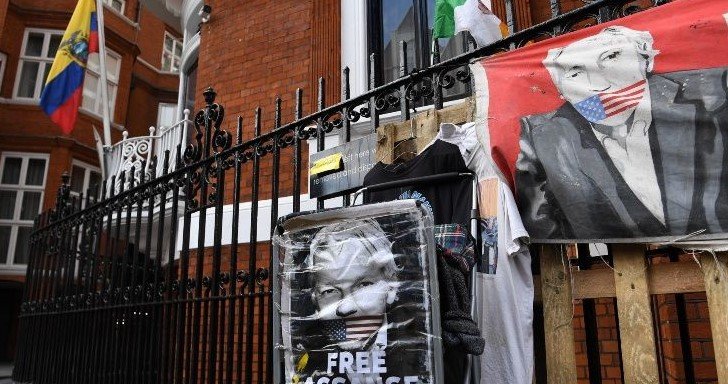
According to cyber forensics course specialists from the International Institute of Cyber Security (IICS) the government of Ecuador has faced about 40 million cyberattacks in retaliation for the decision to remove the political asylum to Julian Assange, founder of WikiLeaks, which lead to his arrest by the British authorities last week.
After remaining as a refugee at the Ecuadorian embassy in London for almost seven years, Lenin Moreno, president of Ecuador, decided to stop giving refuge to the cyber activist. Moreno argues that Assange breached their deal by intervening in the political affairs of other nations, in addition to continuing his cyber espionage activities.
Following the arrest of Assange, several online platforms of the government of Ecuador began to receive multiple cyber attacks allegedly perpetrated by groups sympathetic to the founder of WikiLeaks, reported the cyber forensics course specialists.
The investigations carried out by the Ecuadorian government have revealed that most of the cyberattacks have originated abroad, in countries such as United States, Holland, Germany, Brazil, France and England.
Ecuadorian government officials added that the attackers sent a huge amount of traffic to a single server, saturating their bandwidth to eventually collapse the service. Javier Jara, of the Ministry of Telecommunications of Ecuador, argues that the attacks are directly linked to the arrest of Julian Assange.
According to cyber forensics course specialists, the threat actors focused the attacks mainly on the central bank, the Ministry of Foreign Affairs and the Office of the President of Ecuador.
For now Assange is still detained in Belmarsh prison, United Kingdom. The founder of WikiLeaks could be extradited to the United States, where he faces charges of hacking against the government, or to Sweden, where there is a legal process against him for alleged inappropriate sexual conduct. If he was extradited to U.S. territory, Julian Assange could even be sentenced to the death penalty, although the British government has not yet confirmed whether Assange will be extradited to the U.S.

He is a well-known expert in mobile security and malware analysis. He studied Computer Science at NYU and started working as a cyber security analyst in 2003. He is actively working as an anti-malware expert. He also worked for security companies like Kaspersky Lab. His everyday job includes researching about new malware and cyber security incidents. Also he has deep level of knowledge in mobile security and mobile vulnerabilities.











